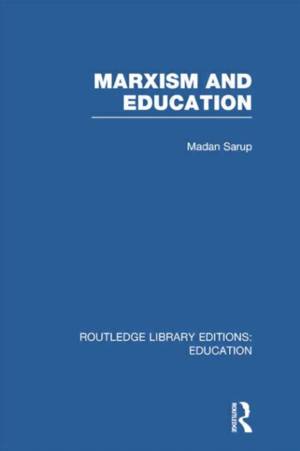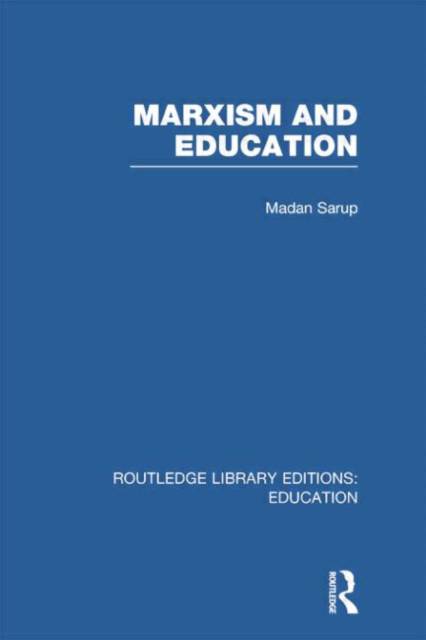
- Retrait gratuit dans votre magasin Club
- 7.000.000 titres dans notre catalogue
- Payer en toute sécurité
- Toujours un magasin près de chez vous
- Retrait gratuit dans votre magasin Club
- 7.000.000 titres dans notre catalogue
- Payer en toute sécurité
- Toujours un magasin près de chez vous
Marxism and Education (Rle Edu L)
A Study of Phenomenological and Marxist Approaches to Education
Madan SarupDescription
This book introduces the student to the various phenomenological and humanistic Marxist perspectives as they are being applied to education and provides an account of the strengths and weaknesses of these perspectives, drawing on a variety of disciplines in order to explain the controversies described. The opening chapters deal with the phenomenological perspective in the sociology of education, discussing its adoption of a phenomenological model of man, its use of anthropological studies, the importance of classroom studies, and its rejection of the 'liberal' philosophy of education. The aim is to show the significance of these ideas for education, with a discussion of the concept of alienation and schooling, developments in Marxism such as the focus on the mode of production and the labour process, and the political economy of education.
Spécifications
Parties prenantes
- Auteur(s) :
- Editeur:
Contenu
- Nombre de pages :
- 4
- Langue:
- Anglais
- Collection :
Caractéristiques
- EAN:
- 9780415753104
- Date de parution :
- 15-12-14
- Format:
- Livre broché
- Format numérique:
- Trade paperback (VS)
- Dimensions :
- 156 mm x 233 mm
- Poids :
- 361 g







